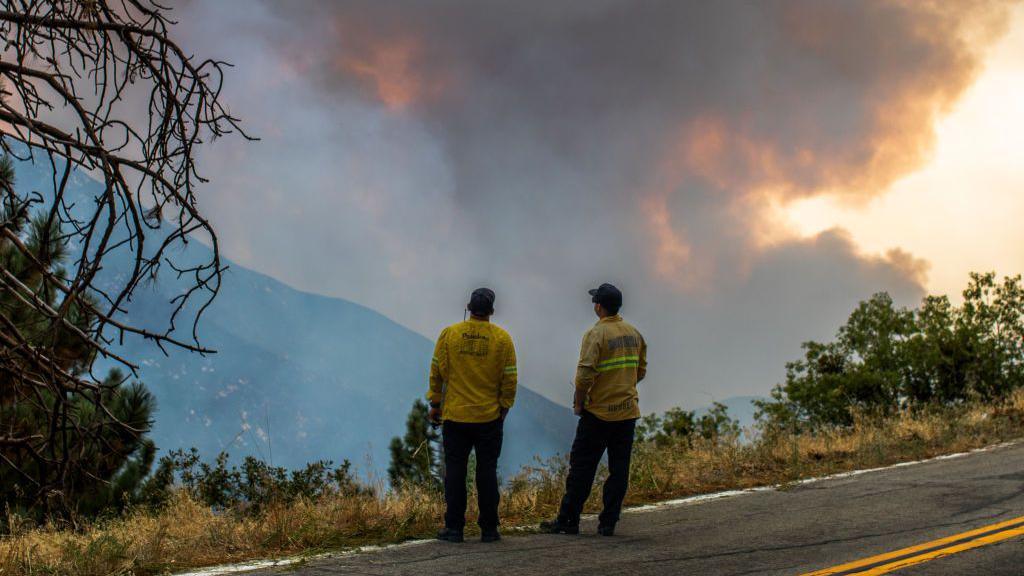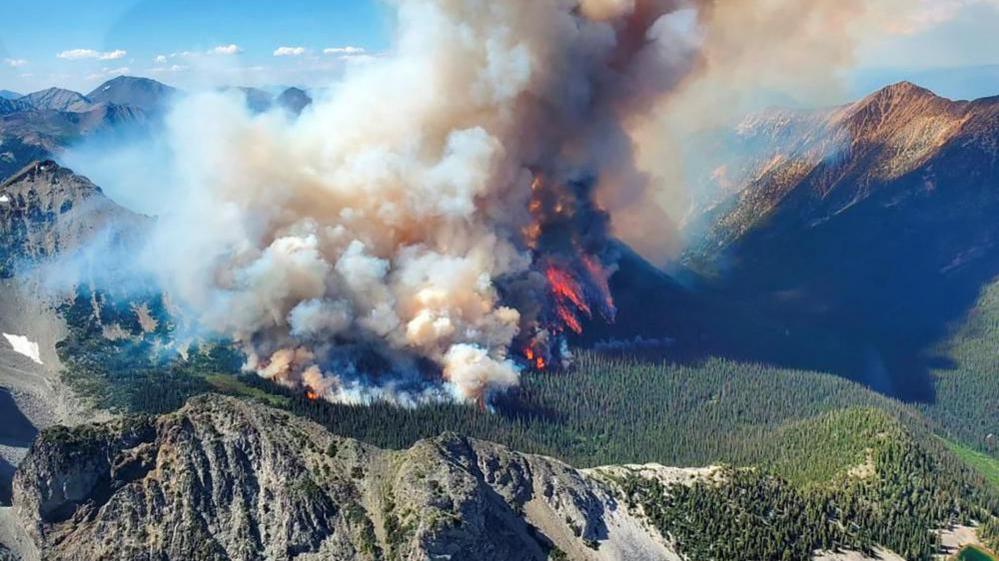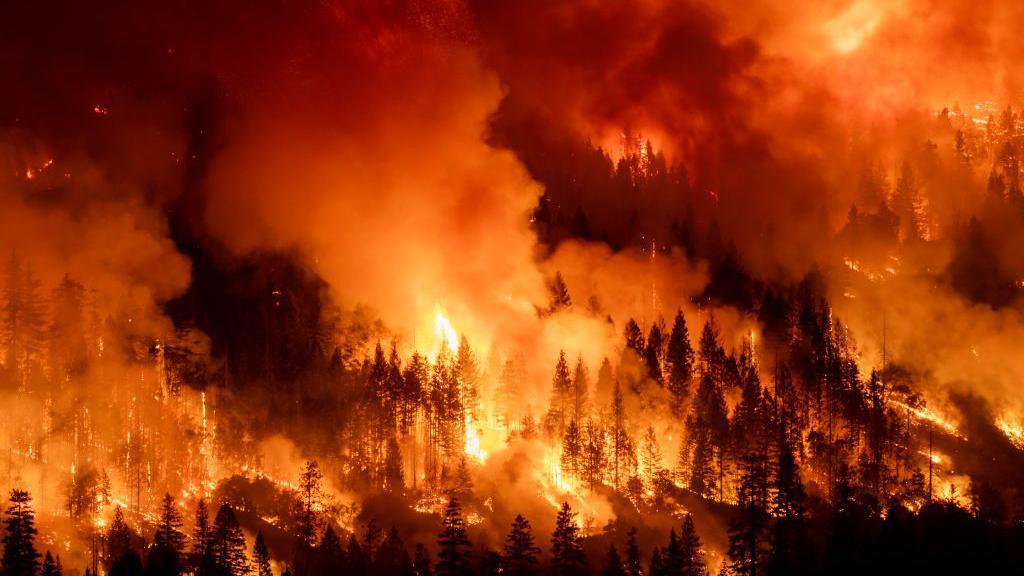Thousands flee Line Fire in Southern California
Watch: Video shows huge plumes of smoke rising above residential areas in San Bernardino County
- Published
More than 10,000 people are under mandatory evacuation orders due to a fast-spreading, uncontrolled wildfire in southern California.
The Line Fire also threatens thousands of homes, businesses and other buildings in San Bernardino County, east of Los Angeles.
The wildfire, which started on Thursday, spread rapidly overnight on Saturday, causing California Governor Gavin Newsom to declare a state of emergency.
The blaze on the edge of the San Bernardino National Forest had grown to more than 20,000 acres (32 square miles) as of Monday evening, and was 3% contained.

It is currently the fourth-largest active wildfire in California, after quadrupling in size on Saturday.
On Sunday, the San Bernardino County Sheriff's Department issued evacuation orders for residents of Running Springs and Arrowbear Lake - communities that sit along a main route to the popular tourist destinations of Lake Arrowhead and Big Bear Lake.
That area alone has a total population of more than 6,000 people, according to CBS News, the BBC's US partner.
The communities of Green Valley Lake, Cedar Glen, Lake Arrowhead, Crestline and Valley of Enchantment were told they may have to leave on short notice.
Fire officials say that 36,328 structures are threatened by the blaze, including family homes, commercial buildings and other "minor structures".
"The flames were right up on us because the wind shifted," Highland resident Brian Gano, who was trying to hose down the flames alongside his wife and son, told KCAL News.
The cause of the fire is under investigation.
Officials said that current weather conditions are "causing very erratic behaviour on the Line Fire", and that the region is critically dry.
Smoke skies pose a challenge for aircraft and are limiting their access to parts of the fire.
More than 1,700 firefighters have been assigned to fight the blaze, and three have been injured.
Wild horses seen escaping wildfires in Nevada
Hot and dry conditions mixed with thunderstorms are expected to continue to challenge firefighters over the next few days.
Dangerous heat is expected across the US southwest and southern California into early this week.
Along with the heat, smoke from the fire has created clouds similar to those that come with thunderstorms - a phenomenon called pyrocumulonimbus.
These clouds - dubbed "fire clouds" - can produce tornadoes and lightning, which can generate even more fires.
There have been reports of more than 1,100 lightning strikes in the area, according to CBS.
In nearby Orange County, the a blaze named the Airport Fire broke out on Monday and ballooned in size in just a few hours.
The fire has engulfed more than 2,000 acres, forcing mandatory evacuations in the mountainous community of Trabuco Canyon.
Officials say they are fighting the fire there with "hand crews, dozers, helicopters, and fixed wing aircraft".
The amount of burned areas in the summer in northern and central California increased five times from 1996 to 2021 compared to the 24 year period before, which scientists attributed, external to human-caused climate change.
Not all wildfires can automatically be linked directly to climate change. The science is complicated and human factors including how we manage land and forests also contribute.
However, scientists say that climate change is making weather conditions that lead to wildfires, such as heat and drought, more likely.
Related topics
- Published29 August 2024

- Published4 August 2024
